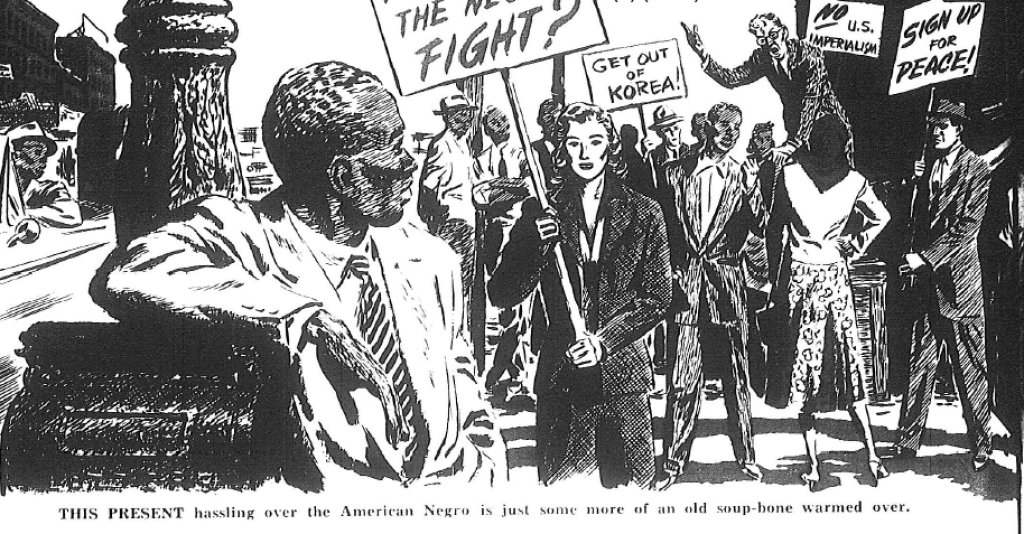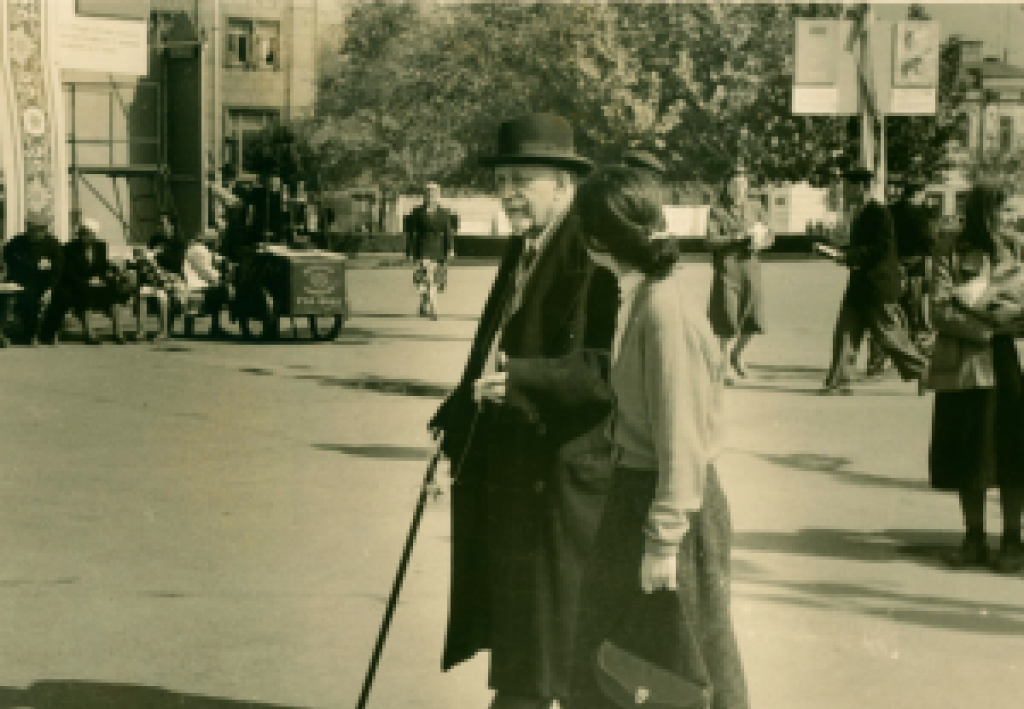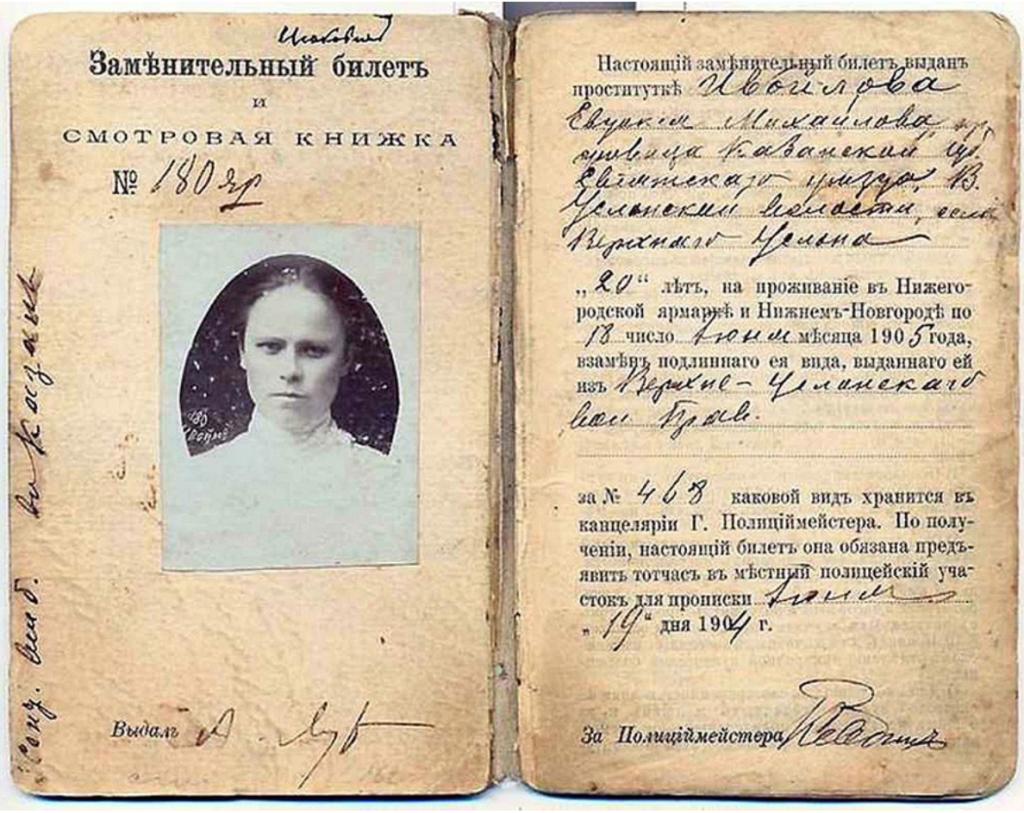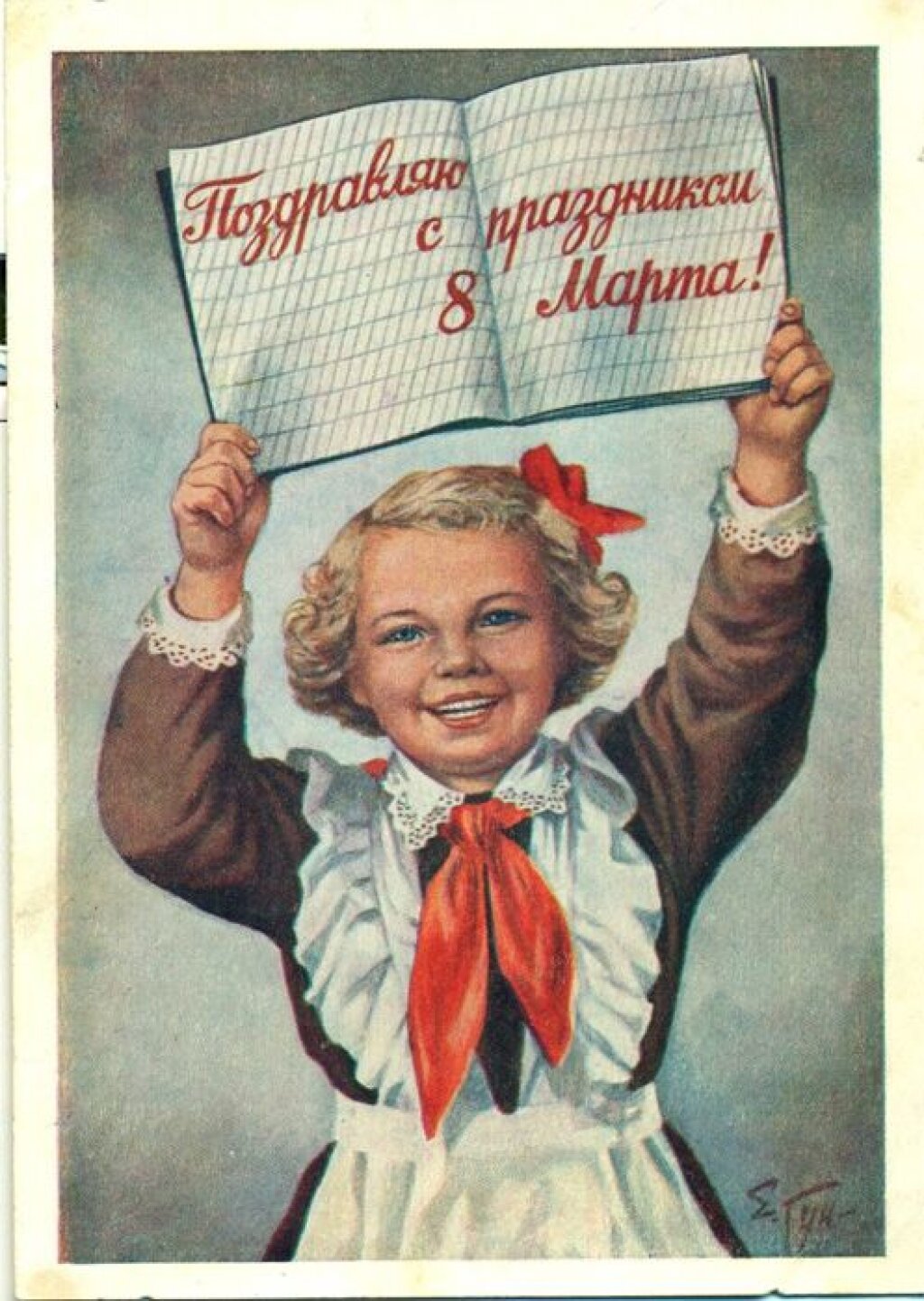“What the hen-fire could Russia do for us?”
Zora Neale Hurston and Audre Lorde Question the “Friendship of Peoples”
For our last class together, I assigned the students two works that post-dated the Harlem Renaissance. The first was a June 1951 article by Zora Neale Hurston titled "Why the American Negro Won't Buy Communism?" that appeared in The American Legion. The second was a chapter from Audre Lorde's collection of essays, Sister Outsider (1984) called "Notes from a Trip to Russia” about her 1976 trip to the Soviet Union for the Asian African Writers’ Conference. I selected these essays to show how the solidarity expressed between African-Americans and the Soviets during the 1920s and 30s waned over time. If I have the opportunity to teach this class again, I would add to this unit an excerpt from the recently discovered Claude McKay novel, Amiable With Big Teeth: A Novel of the Love Affair Between the Communists and the Poor Black Sheep of Harlem, which I unfortunately discovered too late to assign my students in Moscow. Over the course of the semester, we'd been reading authors who were, for the most part, optimistic about the Soviet project and saw capitalism to be at the root of America's race problems. Hurston and Lorde provided an opportunity to temper that optimism with certain realities. For Hurston, that meant seeing Soviet sympathy towards African-Americans as a tool of imperialism, and for Lorde, that took on an intersectional nature; throughout her essay, she critiques the place of women of color in the Soviet system by exploring gender norms in Tashkent.
Hurston's piece was unsurprisingly electric and pulled no punches, caustically asking, "What the hen-fire could Russia do for us?" Hurston's antipathy towards the Soviet Union is no surprise. A libertarian known for siding against many of her more liberal (and often quite radical) peers within the Harlem Renaissance movement, Hurston expresses so much vitriol in her essay as to render it hackneyed commie fear-mongering typical of that era. However, she did raise an interesting question that we discussed at great length. Hurston felt that Soviet propaganda regarding race relations in America was actually a tool to convince non-white nations to join their cause. She specifically talks about Soviet efforts to encroach upon Asia, efforts she calls “Czarist Russian plans for world domination.” We looked at Soviet propaganda posters over time, and we discussed how indeed, the focus earlier on was squarely US racial politics, and over time, the message pivoted towards universal brotherhood among nations. The students thought that Hurston’s appraisal of the situation was spot on. Overall, they had insisted throughout the semester that Soviet solidarity with African-Americans was insincere and undoubtedly a political tool, a tool they felt they better understood having read Hurston’s piece.
Nonetheless, they emphasized again and again that government propaganda was better than nothing, for it at least made conversations about racial equality a part of daily life. In saying so, they articulated what Audre Lorde herself believed, that while anti-racist discourse in the Soviet Union was too much of a public matter, and not enough of a private one, it was still important that the conversation was being had in the first place:
It's not that there are no individuals who are nationalists, or racists, but that the taking of a state position against nationalism, against racism is what makes it possible for a society like this to function. And of course the next step in that process must be the personal element. I don't see anyone attempting or even suggesting this phase, however, and that is troublesome, for without this step socialism remains at the mercy of an incomplete vision, imposed from the outside. We have internal desires, but outside controls. But at least there is a climate here that seems to encourage those questions.
After we finished discussing Hurston, we moved onto Audre Lorde’s essay from Sister Outsider. This was my favorite piece from the semester, and the one I highly recommend to anyone teaching a Soviet culture course. As well as being intersectional, it was also very funny. Audre Lorde's sense of humor, much like Dostoevsky's, is criminally underrated. Tired from being shuttled around to various meetings as part of an official delegation to the Soviet Union, Lorde notes with sarcasm, “We went later in that afternoon to another meeting of solidarity for the oppressed people of Somewhere.”
We started by talking about Lorde’s reason for visiting the Soviet Union in the first place. In 1976, she flew to Moscow and then to Tashkent to attend the African-Asian Writers’ Conference, the first meeting of which took place in 1957 (W.E.B. Du Bois famously attended that same conference in 1958). Lorde’s impressions of Tashkent are overall positive; she describes feeling more at home there than she did in Moscow: "If Moscow is New York, Tashkent is Accra.” We described how in comparing Tashkent to Accra, Lorde is speaking into the language of solidarity between peoples of color worldwide, albeit in a way different from the official Soviet “friendship of peoples” line, and more in keeping with discourses of self-determination espoused by the non-aligned movement. She openly discusses racial tensions between “North Russians and Uzbeks,” and she also decries the lack of black women at the Conference, noting that she is one of only four there. Lorde also meets with a “Madame Izbalkhan,” the head of the Uzbekistan Society of Friendship, and Lorde is critical of the fact that the collective childcare centers there are staffed exclusively by women.
Lorde also asks her tour guide in Tashkent about treatment of Jews in the Soviet Union. My students and I were happy that someone was finally asking about Jews. We discussed the fact that many of the African-American authors we studied who traveled to Russia were focused on the treatment of Central Asians and paid relatively no attention to that of the Jews. Even Langston Hughes’ essay in the Chicago Defender, “The Soviet Union and the Jews,” focused on the pogroms of tsarist Russia, and not on contemporary struggles. We talked about why this might be, and I offered my guess that African-American visitors to Russia were likely used to thinking of ethnic discrimination in terms of skin color. My students at this point became quite animated. They spoke with immense pride that RGGU had a strong record as an institution that welcomed Jewish students and scholars . They all agreed that this was a source of pride for the university as a whole, and that it had resulted in a very progressive atmosphere at the university. This perhaps could explain why my students were so receptive to discussing race and criticizing their own country for discriminating against minorities.
I would like to end this blog series by thanking RGGU, particularly the Russian-American Studies Center and its director, Dr. Marina Kaul, for facilitating my time there and for allowing me to teach this course for the first time. I also want to end with a sweet anecdote from one of my last classes. Sometime in April, Apple unveiled ethnically diverse emojis. I only realized this when my students came up to me after class and told me about it, and informed me that they were now using African-American emojis to express their solidarity with the black struggle. I never expected that my most emotional moment as a teacher would revolve around emojis, but at that moment, I felt like we had attained, even if just within the confines of that seminar room, the “personal element” between Russians and people of color that Lorde had been searching for in Tashkent.




